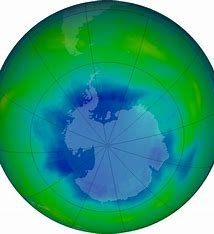A groundbreaking study published in the journal Proceedings of the National Academy of Sciences has revealed the remarkable impact of the 1987 Montreal Protocol on the environment. The international treaty, designed to protect the ozone layer, has inadvertently contributed to delaying the occurrence of the first ice-free Arctic summer. The research, conducted by scientists from UC Santa Cruz, Columbia University, and the University of Exeter, highlights the significant role of ozone-depleting substances (ODSs) in driving Arctic climate change and how their regulation has provided unexpected climate benefits.
The Montreal Protocol, ratified by every United Nations country, regulates nearly 100 man-made chemicals known as ODSs. Although primarily aimed at preserving the ozone layer, these substances also act as potent greenhouse gases, contributing to global warming. The study demonstrates that the reduction in ODS emissions resulting from the protocol has had a tangible impact on global climate change, particularly in the Arctic region. Each 1,000 metric tons of prevented ODS emissions have been estimated to save approximately seven square kilometers of Arctic sea ice.
While opponents of the Montreal Protocol predicted negative consequences, the study reveals that most of these concerns did not materialize. Instead, numerous instances of unintended climate benefits have been documented. The research emphasizes that although ODSs are not as prevalent as other greenhouse gases like carbon dioxide, their influence in the Arctic has been significant. ODSs played a major role in driving Arctic climate change in the latter half of the 20th century, and the protocol’s regulations have successfully mitigated these effects.
The first ice-free Arctic summer, a significant milestone in climate change, has been delayed by up to 15 years due to the Montreal Protocol’s effects. This delay, projected to occur in the middle of this century, demonstrates the protocol’s substantial contribution to preserving Arctic sea ice. The researchers employed state-of-the-art climate models to demonstrate that it is the role of ODSs as greenhouse gases, rather than the direct protection of the ozone layer, that has influenced the Arctic climate positively.
The Montreal Protocol has emerged as a climate protection treaty with remarkable effectiveness. Beyond healing the ozone hole over the South Pole, its effects have reverberated globally, especially in the Arctic. By regulating ozone-depleting substances, the protocol has unintentionally slowed down the loss of Arctic sea ice, thus delaying the first ice-free Arctic summer. The study’s findings underline the critical importance of international cooperation and proactive measures in combating climate change. As the global community continues to tackle environmental challenges, the Montreal Protocol serves as a shining example of how targeted efforts can yield unexpected positive outcomes for our planet’s delicate ecosystems.

